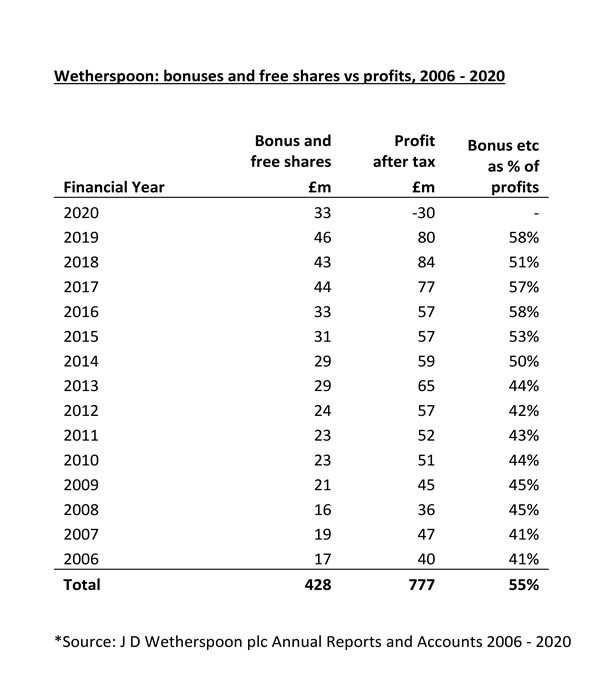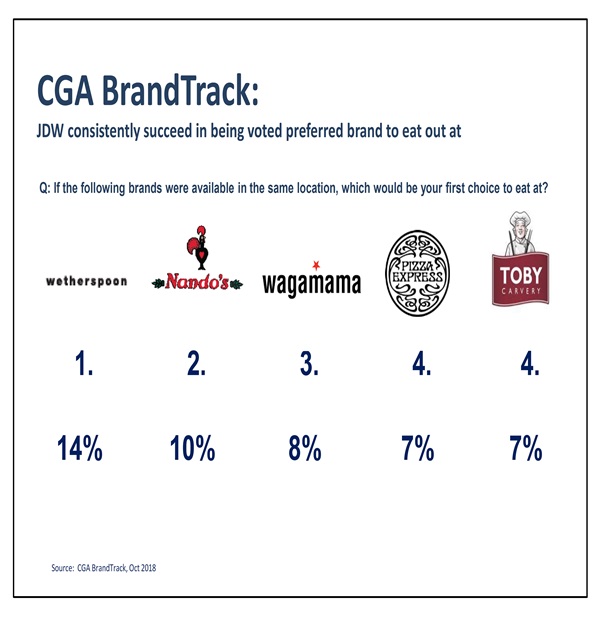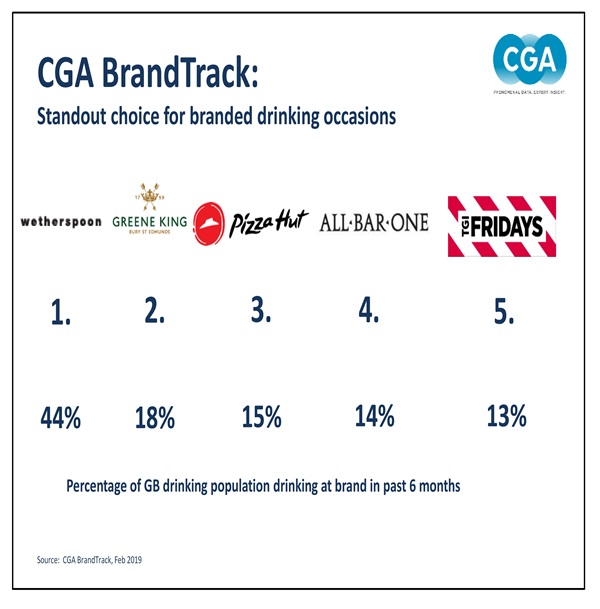J D WETHERSPOON PLC
NEWS RELEASE - CORRECTION
An article in Businessweek (26 February), regarding Wetherspoon, contains a number of inaccuracies:
-the article says that Wetherspoon plays “host to drunken students”. This is a serious allegation to make about a pub company. “Playing host” in this way would be unlawful, since pubs have a legal obligation, enforced by the licensing authorities, to prevent drunkenness. Pub liquor licences can be lost if legislation is not adhered to. Wetherspoon has never, in its history, lost a licence on these grounds.
-the article says Wetherspoon is “sacrificing worker pay for affordable prices”. However, average Wetherspoon pay, excluding management grades, is 12% over the minimum wage. In addition, Wetherspoon paid bonuses and free shares (see table below) to employees equivalent to 55% of its profits after tax in the last 15 years. 15,032 employees own shares in the company. Since the share scheme was introduced, Wetherspoon has awarded 20.6 million free shares to employees, approximately 16% of the shares in issue today.
-the article says that Wetherspoon “took advantage of a beer supply surplus to secure cheap contracts”. This is untrue. The company has never been made aware of a “beer surplus” and believes that “taking advantage” would be impossible, since beer is produced in short cycles, in line with current demand.
-the article says that Wetherspoon “unlike traditional pubs ... divides its pubs into gridlike seating plans.....reducing the frequency of chance interactions”. This claim is completely untrue. There is no observable difference between Wetherspoon seating layouts and those of many competitors. The reference to reducing interactions is entirely fictional.
-the article says that Wetherspoon “leverag(ed) it’s scale to beat out smaller competitors”. This is misleading. There are far more competitors now in the hospitality industry than there were in the past- coffee shops, restaurants and cafes, which sell many of the same products as Wetherspoon, have grown exponentially. Many smaller pub competitors, trading in close proximity to Wetherspoon, like Loungers, Fuller’s, Young’s and St Austell have grown substantially.
-the article refers to Wetherspoon as the “Most-Hated” pub company. This is untrue. An independent market research survey (see below) by CGA BrandTrack of 5000 consumers in 2018, for example, reported that Wetherspoon is “the preferred brand to eat out at”. A similar survey in 2019 (see below), also by CGA BrandTrack, found that Wetherspoon was the “standout choice for branded drinking occasions”.
-the article says that Wetherspoon chairman Tim Martin is “a lifetime skeptic of the EU” and that “he began in the 1990s to push for Britain to prune its ties with Brussels”. This is untrue. As Mr Martin has said, on a number of occasions, his first opposition to the EU was when it was proposed that the UK join the euro in around 2000, following the failure of the euro’s predecessor, the exchange rate mechanism in the early 1990s.
Tim Martin said –
“There are a number of other errors in the Businessweek article, but these are the main ones. It is important for the corrections to be in the public domain”.

CGA BrandTrack Survey (October 2018) – Preferred Brand

CGA BrandTrack Survey (February 2019) – Standout choice
